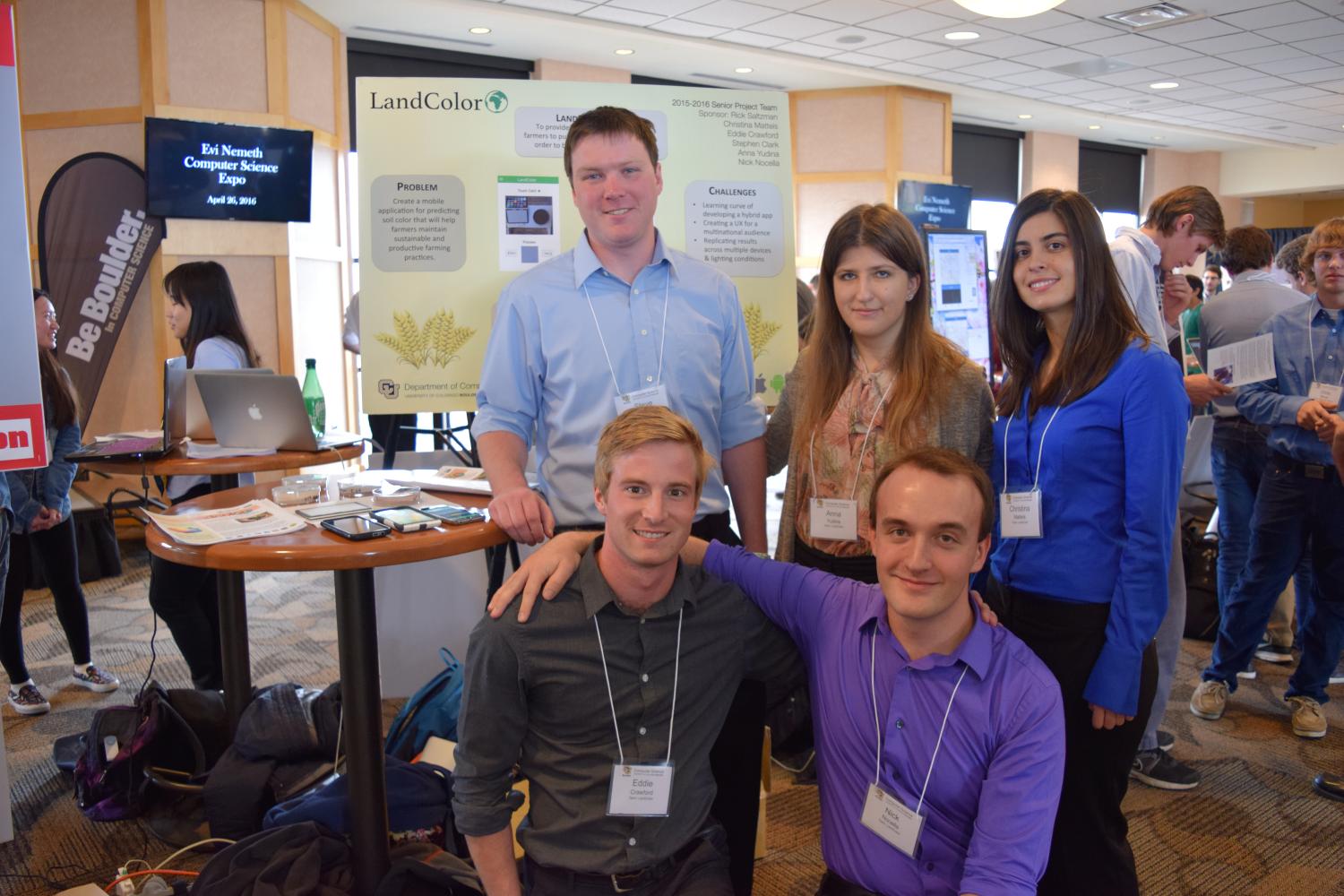Students design app to analyze soil samples via photo

A group of talented computer science students has designed a smartphone app that could help rural farmers in developing nations analyze their soil quality with just the click of a camera.
It’s one of numerous astonishing projects unveiled this spring at the college’s senior design expos, showcasing the hands-on learning, industry collaboration, and focus on solving global problems that are hallmarks of the CU-Boulder College of Engineering and Applied Science.
Team leader Christina Matteis said the senior design project was a true challenge, like one massive final exam.
“It forced us to use different technologies we have not been exposed to before,” Matteis said. “We had to apply all of the knowledge we’ve learned since day one of our college career towards one large project.”
Working across two semesters, group members Steve Clark, Eddie Crawford, Nick Nocella, Anna Yudina and Matteis developed an app called Landcolor. Together with other existing apps for soil conditions, the program is intended to help farmers and ranchers in places like Namibia and Kenya assess their soil quality and discover best treatments to increase yield. Farmers simply photograph their soil, and the app translates the image colors into standard color measurements used in the industry that help illuminate the health of the soil.
The app had to work on all phones, with all soils, and in all lighting conditions. And it had to be simple enough that farmers or extension agents who might have limited English proficiency could intuitively understand the process.
The “client” was the Land-Potential Knowledge System, or LandPKS, which provided funding and guidance for the app’s development. Funded by the USDA and USAID, the project is developing free, open-source technology tools for assessment and sustainable land use planning that connect people across the globe.
Jeff Herrick, a soil scientist with USDA’s Agricultural Research Service who leads LandPKS, said he looks forward to analyzing the data collected by the app to see if it can be further developed to complement the existing assessment tools.
“It will help us provide additional information that can be used to assess soil quality, together with a lot of information that’s already in the cloud, so it’s a very small but potentially important piece of a bigger puzzle,” Herrick said.
Project sponsor Rick Saltzman, a technical architect for LandPKS, said he had never been involved with a senior capstone project before but wished he had dozens more students to help with related projects. He praised the team for its ability to troubleshoot and combine diverse skillsets.
“I gave these guys a hard problem,” Saltzman said. “We had tried to solve this problem before, and we did not succeed, so I gave it to some folks who didn’t know how hard it was to do, and you can see the results.”
The Department of Computer Science is always seeking individual, corporate and organizational sponsors to propose and support senior design projects. Aside from providing tangible results, the projects allow sponsors to assess potential future employees and provide professional mentoring for the next generation of engineers. For more information, contact compscisrproj@Colorado.EDU.


